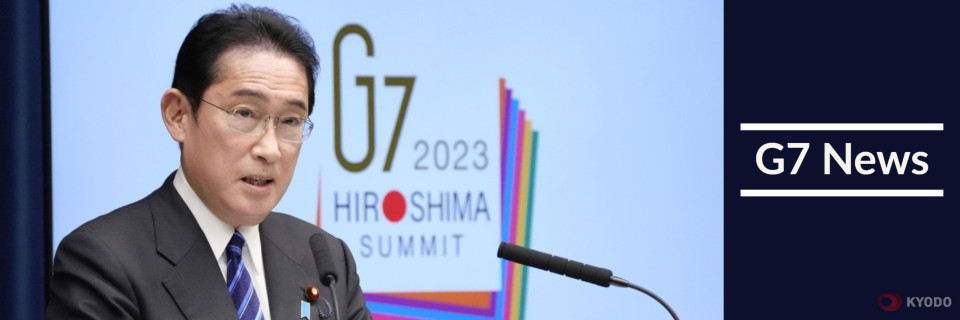The leaders of Japan, Australia, India and the United States on Saturday agreed to pursue a region free from "intimidation and coercion," making a renewed commitment to preserving a rules-based order in the face of China's military and economic ambitions.
Meeting on the sidelines of the Group of Seven summit in Hiroshima, they also outlined some principles of the partnership, known as Quad, when dealing with challenges in the Indo-Pacific region. They included managing competition "responsibly" and working "transparently" with other regional partners.

Japanese Prime Minister Fumio Kishida said, "The security environment has become even more severe," and that an "international order based on the rule of law is under threat" as he sat together with other leaders.
Under such circumstances, he said it is especially important to encourage the international community to have more "cooperation," not "division and confrontation."
U.S. President Joe Biden said one of the grouping's missions is to demonstrate "the capacity of democracies to deliver."
"Our vision is for a region that is peaceful and prosperous, stable and secure, and respectful of sovereignty -- free from intimidation and coercion, and where disputes are settled in accordance with international law," they said in a joint statement released after their discussions.
China has criticized the grouping as an Asian version of NATO, although it is not a security alliance, and the areas of cooperation now include infrastructure and critical technologies, climate change and outer space.
With China's increased use of economic means to push its strategic interests in mind, the Quad statement, without naming the country, said, "We seek a region in which all countries and peoples can exercise free choice on how they cooperate and trade based on partnership, equality and mutual respect."

The leaders welcomed the launch of infrastructure initiatives, such as improving undersea cables together to achieve better internet connectivity across the region, according to the U.S. government.
The four countries, which organized the first summit only two years ago, are on the same page in many respects, but India's stance on Russia's war against Ukraine is not in sync with the others.
The third in-person Quad summit was held on the sidelines of G-7 discussions hours after Ukrainian President Volodymyr Zelenskyy arrived in the Japanese city to secure more support for his country.
They "frankly" discussed the potential implications of the Ukrainian crisis on the Indo-Pacific region, according to the Japanese government.
Having close military and economic ties with Russia, India has refrained from condemning Moscow over its invasion of Ukraine. It remains to be seen whether Japan, Australia and the United States can come closer with India on the issue.
Kishida invited Australian Prime Minister Anthony Albanese and Indian Prime Minister Narendra Modi to join parts of the three-day G-7 summit, which concludes Sunday.
Initially, the Quad summit was to take place in Sydney next Wednesday after Biden made a planned stop in Port Moresby, the capital of Papua New Guinea. But those plans were scrapped just a day before Biden left for Hiroshima as he had decided to focus on debt ceiling negotiations in Washington.
"I truly apologize to you for having you to come here rather than me being in Australia right now. But we have a little thing going on at home I got to pay attention to," Biden said in his opening statement when he met with Albanese one-on-one earlier Saturday.
When asked if he is anxious about the debt talks with congressional leaders, Biden said, "Not at all" and told Albanese, "I still believe we'll be able to avoid a default."
Biden promised to host Albanese for a state visit later this year in Washington.
Related coverage:
G-7 to stand by Ukraine, urges China to help end Russia invasion
Zelenskyy arrives in Japan for G-7 summit, 1st since Russia invasion
FOCUS: Japan's bid to get closer to India for security may worry U.S.

 By Takuya Karube,
By Takuya Karube,









